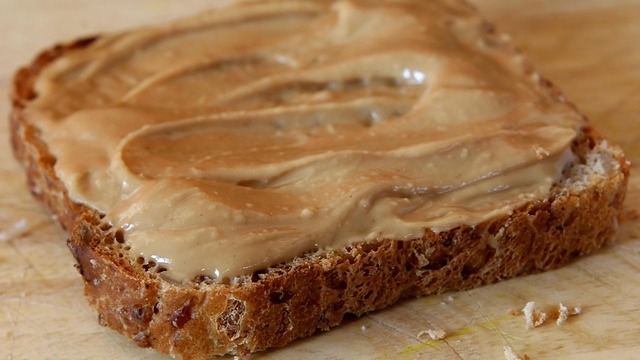
Is Peanut Butter a Good Source of Protein? A Nutritionist's Perspective
Peanut butter has long been a staple in many households - spread on toast, added to smoothies, or simply enjoyed by the spoonful. Beyond its creamy texture and delicious taste, peanut butter is often touted as a good source of protein. But how does it truly stack up from a nutritional standpoint? Let's take a closer look at the facts.
The Protein Content of Peanut Butter
A standard 2-tablespoon (32g) serving of natural peanut butter typically contains:
7-8 grams of protein
16 grams of fat
6 grams of carbohydrates
About 190 calories
When we analyze these numbers, peanut butter delivers approximately 15-16% of its calories from protein. For comparison:
Chicken breast: 80% of calories from protein
Greek yogurt: 40-60% of calories from protein
Lentils: 30% of calories from protein
Eggs: 35% of calories from protein
Tuna: 85-90% of calories from protein
This comparison reveals that while peanut butter does contain protein, it's not a particularly protein-dense food when considering its caloric content. The daily recommended protein intake for an average adult is about 0.8g per kilogram of body weight (or about 56g for a 70kg adult), meaning a serving of peanut butter contributes roughly 12-14% of daily protein needs for many adults.
Quality of Protein in Peanut Butter
Protein quality matters as much as quantity. Peanut butter contains plant-based protein that, while beneficial, is considered "incomplete" because it lacks sufficient amounts of certain essential amino acids, particularly methionine. This doesn't mean peanut butter protein is inferior—it simply means it should be complemented with other protein sources throughout the day.
The biological value (BV) of peanut protein is around 55, compared to 100 for eggs and 74 for soy. The Protein Digestibility Corrected Amino Acid Score (PDCAAS), another measure of protein quality, gives peanut protein a score of about 0.52 out of a possible 1.0.
However, research suggests that consuming a variety of protein sources throughout the day enables the body to maintain an adequate amino acid pool, making the completeness of any single protein source less critical for most healthy individuals.
The Fat Factor
The relatively high fat content in peanut butter is worth noting. While most of this fat is heart-healthy unsaturated fat, it does contribute to peanut butter's caloric density. This means that relying heavily on peanut butter for protein needs would also introduce significant fat and calories to your diet.
Breaking down the fat content in peanut butter:
50% monounsaturated fat (heart-healthy)
33% polyunsaturated fat (beneficial)
14% saturated fat
0% trans fat (in natural varieties)
This favorable fatty acid profile may help improve cholesterol levels when peanut butter replaces less healthy fats in the diet. Studies have associated regular nut and peanut butter consumption with reduced risk of cardiovascular disease and type 2 diabetes.
Peanut Butter vs. Other Nut Butters
How does peanut butter compare to other popular nut butters in terms of protein content?
Nut Butter (2 Tbsp) |
Protein (g) |
Calories |
|---|---|---|
Peanut butter |
7-8 |
190 |
Almond butter |
6-7 |
200 |
Cashew butter |
4-5 |
190 |
Sunflower seed butter |
5-7 |
200 |
Hazelnut butter |
4-5 |
200 |
Peanut butter generally leads the pack, offering slightly more protein per serving than most alternatives.
Peanut Butter in Context
For a more balanced perspective, consider these scenarios:
For vegetarians and vegans: Peanut butter can be a valuable protein source when combined with complementary plant proteins like whole grains. A peanut butter sandwich on whole grain bread creates a complete protein profile by combining the lysine in peanuts with the methionine in grains.
For athletes and active individuals: While peanut butter provides some protein, its higher fat content makes it a less efficient protein source for muscle recovery than leaner options. However, its caloric density and nutrient profile make it useful for endurance athletes who need energy-dense foods. Many sports nutritionists recommend peanut butter as part of pre-workout snacks due to its combination of protein, fat, and carbohydrates for sustained energy.
For children: The combination of protein, healthy fats, and palatability makes peanut butter an excellent nutritional option for growing bodies (allergies notwithstanding). It's also a convenient way to boost caloric intake for picky eaters or children who need to gain weight.
For weight management: The protein and fat in peanut butter can contribute to satiety, but portion control is crucial given its caloric density. Several studies suggest that including nuts and nut butters in a calorie-controlled diet may actually improve adherence and weight loss outcomes due to improved satisfaction and reduced hunger.
For older adults: The easily consumable nature of peanut butter makes it a practical protein source for seniors who may have difficulty chewing or reduced appetite. Its nutrient density can help address multiple nutritional needs efficiently.
Beyond Protein: Nutritional Benefits
Peanut butter offers more than just protein:
Rich in vitamin E (about 15% of daily needs per serving), an antioxidant that protects cells from damage
Good source of magnesium (13% DV) and phosphorus (10% DV), important for bone health
Contains niacin (25% DV) and other B vitamins that support energy metabolism
Provides resveratrol, which has anti-inflammatory properties
Contains bioactive compounds like p-coumaric acid with antioxidant effects
Source of coenzyme Q10, which supports heart health
Offers moderate amounts of zinc, important for immune function
Contains small amounts of potassium, which helps regulate blood pressure
These additional nutrients make peanut butter a more valuable protein source than isolated protein supplements that lack these naturally occurring compounds.
Potential Concerns
Despite its benefits, peanut butter comes with some considerations:
Allergies: Peanut allergies are among the most common food allergies and can be severe or life-threatening for some individuals.
Aflatoxins: Peanuts can contain aflatoxins, naturally occurring toxins produced by certain molds. Commercial peanut butter in developed countries is monitored and typically contains minimal amounts well below safety thresholds.
Added ingredients: Many commercial peanut butters contain added sugars, hydrogenated oils, and salt, which can diminish their nutritional value. Natural and minimally processed varieties are preferable.
Omega-6 fatty acids: Peanut butter contains a relatively high amount of omega-6 fatty acids, which some nutrition experts believe may contribute to inflammation when consumed in excess relative to omega-3 fatty acids.
Making the Most of Peanut Butter as a Protein Source
To optimize peanut butter's role in your diet:
Choose natural varieties without added sugars, oils, or preservatives
Pair it with complementary protein sources (whole grain bread, for example)
Be mindful of portion sizes to manage caloric intake
Consider it part of a diverse protein strategy rather than a primary source
Look for organic options if you're concerned about pesticide residues
Try powdered peanut butter (PB2) as a lower-fat alternative with a higher protein-to-calorie ratio (about 6g protein for 70 calories)
Use it strategically in recipes where its fat content serves a purpose (such as post-workout recovery snacks or nutrient-dense breakfast items)
Creative Ways to Incorporate Peanut Butter Protein
Beyond the classic PB&J, consider these protein-boosting applications:
Add a tablespoon to oatmeal along with a sprinkle of hemp seeds for additional protein
Blend into smoothies with Greek yogurt for a protein-rich breakfast
Mix with Greek yogurt to create a high-protein dip for apple slices
Use as a base for savory sauces in Thai-inspired dishes
Incorporate into homemade energy bars with other protein sources like seeds and whey protein
Stir into soups or stews for added creaminess and nutritional value
Mix with soy sauce, lime juice, and chili for a protein-rich sauce for vegetable dishes
The Verdict
Peanut butter is a moderate source of protein that comes packaged with healthy fats and other beneficial nutrients. While it shouldn't be your main protein source, it can certainly contribute meaningfully to your overall protein intake, especially when thoughtfully incorporated into a varied diet.
For those seeking the highest protein-per-calorie foods, leaner options like poultry, fish, egg whites, or plant-based alternatives like tofu and legumes might be preferable. However, peanut butter's combination of nutrition, taste, convenience, and affordability makes it a valuable component of a balanced diet for many people.
In nutrition, context is everything. Peanut butter isn't just about the numbers—it's about how it fits into your overall dietary pattern and personal health goals. As part of a thoughtfully planned diet that includes a variety of protein sources, peanut butter can be both nutritious and delicious—a rare combination that helps explain its enduring popularity.
 Add Row
Add Row  Add
Add 




Write A Comment